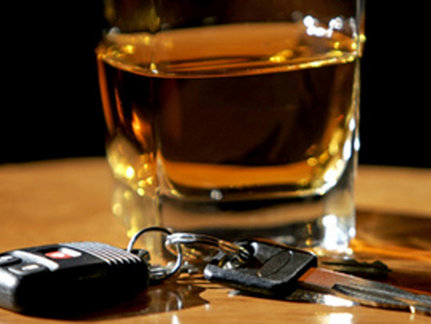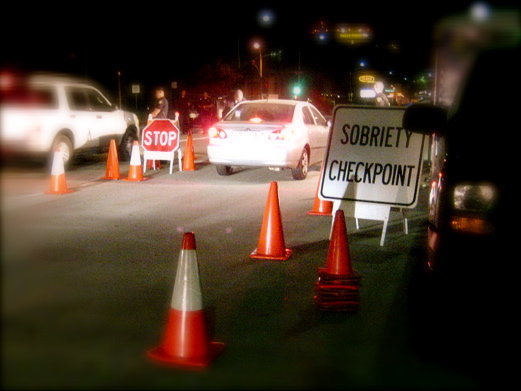February is "Bar Month" at OnMilwaukee.com, and we'll serve up more than a six pack a week of bar articles all month long. Look for bartender profiles, drink recipes, revamped bar guides and more!
Getting behind the wheel after drinking is a dangerous and potentially lethal mistake.
Craig Kuhary strongly urges people not to do it, even though the advice is potentially bad for his business as a criminal defense attorney specializing in drunk driving cases.
"If you think you've had too much (to drink) or if it's even close, an ounce of prevention is worth a pound of cure," said Kuhary, whose office is located in Waukesha. "Pay for the $40 cab ride and pick up your car the next day. You can save yourself a lot of headaches and a lot of money."
Andrew Mishlove, a Milwaukee attorney who handles a lot of drunk driving cases, agreed.
"It is a proven fact that alcohol impairs your ability to judge your own level of impairment," Mishlove said. "Don't try to 'just make it home.'" Don't believe that you are OK to drive if you are only a little buzzed. Do not drive. You could injure or kill someone. Even if no one is hurt, if you are stopped by the police you are in for an expensive ordeal that could cost you many thousands of dollars, put you in jail and hurt your career. Take a taxi."
If you drive around Milwaukee between 10 p.m. and 3 a.m., particularly on weekends, you'll notice that many people don't follow that advice. Some make it home safely. Some get in accidents. Others get pulled over by police.
As a service to readers during "Bar Month," OnMilwaukee.com asked Kuhary and Mishlove to detail some common mistakes -- aside from the decision to drive after drinking -- that people make in the glare of the flashing red lights and some tips to avoid compounding the problem:
Move over -- "Pull over as soon as it can be done safely," Mishlove said. "Police officers are trained to observe how safely and quickly you respond to the emergency lights. If you delay in stopping, it may be taken as a sign of intoxication."
Mind your manners -- Mishlove and Kuhary stressed the importance of being polite to the officer, without offering too much information.
"A lot of people try to be sarcastic," Kuhary said. "They try to be funny. The thing you want to do is pretend you're on videotape. Even if you aren't, the officer is going to write down everything you tell them."
Mishlove, who is the state's only board certified drunk driving defense specialist, said many drivers try to "talk themselves out" of an arrest by saying things like "Can't you just let me go home?" or "I only had a couple of drinks a few hours ago." And "I'm on medication."
"You have a right to remain silent, so it's best not to volunteer information," he said.
Take the tests -- After the initial stop come the tests. Field sobriety tests. Breath tests. Blood tests. While many drivers think it's smart to refuse the tests, Kuhary and Mishlove say that's a major mistake.
"If you refuse to do a field sobriety test, it will be marked as a failure on that test," Mishlove said. "I know it's not fair. The tests aren't fair. But that's the law in Wisconsin.
"If you refuse to give a breath or blood sample, you will be charged with the separate offense of refusal."
Said Kuhary: "Always take the tests. No matter what, if you refuse a roadside field sobriety test they're going to arrest you. You will be written for a refusal (to take the tests) and that can be worse than a conviction. You may blow a .07 (in a breath test) which is below the legal limit, but you can still be written for refusal. Always take the tests."
Mishlove pointed out that the breath tests administered at the road side are not admissible in court. "Even if you give a sample on the road, you may be asked to give breath or blood again later," he said. "If you refuse, that will lead to a separate charge of refusal, which carries a penalty of driver's license revocation. If you are asked to give blood and you refuse, the police may physically force you to cooperate -- and you will still be charged with refusal."
"At this point, a lot of people will volunteer damaging information," Kuhary said. "Don't give specifics. Don't give numbers. If they ask you how many drinks you've had, just say 'a couple' or 'a few.' That way, you're not locking yourself into a number. The police can say, 'He said two or three drinks at the scene, then later it was three or four. Even he doesn't know. He can't keep track.'"
You're caught. Now what? -- Kuhary said that most first offenders can avoid spending a night in jail. "If it's a repeat offense, you're going to spend at least a night and maybe a weekend in jail," he said. "If it's a first offense, you can usually have a responsible party come and pick you up."
Plan your appeal -- In Wisconsin, you can have your license administratively suspended by the Dept. of Transportation before you are even charged with OWI. You'll be given paperwork upon your release and have 10 days to respond. Both Kuhary and Mishlove stressed the importance of requesting a hearing during the time period allotted.
Penalties -- For a first offense, Kuhary said drivers can expect to lose their license for six to nine months and pay a base fine between $150 and $300. Adding in court costs, fees and penalties and the tab runs to about $700. The second offense has a fine range of $350 to $1,100, jail from five day sto six months and revocation from 12 to 18 months. The third offense has a fine range of $600 to $2,000, pluss the $355 surcharge, jail from 30 days to one year and revocation from two to three years.
First-time offenders are immediately eligible to apply for occupational licenses. Repeat offenders must wait (60 days for second offense; 90 days for third and subsequent offenses). After the second or third offense, you can expect substantial increases on your insurance premiums. "If you're going to get occupational license, don't tell your carrier right away," Kuhary said. "If you get caught, they're not your friend in that circumstance."
Remember the details and leave a paper trail -- Since the lag time between arrest and trial can stretch several months, Kuhary urges clients to remember as many details as possible from the day of the arrest.
"I always recommend if you do get nailed, write down everything you did that day starting with what socks you put on," Kuhary said. "Where you went and what you did long before the drinking. If you can recall everything else about the day, your testimony has more weight."
It's also a good idea to leave a paper trail.
"For drinking, I'm urging people to charge everything they do," Kuhary said. "With pitchers of beer, it's harder to keep track of how many drinks you've had. If it's mixed drinks or bottled beer, a credit card receipt can save you."
Know your limits -- Blood-alcohol content is tied to body weight, not any scientific theory about alcohol evaporating. A chart distributed by the Wisconsin State Patrol indicates that a 180-pound who has five drinks in a two-hour period will be "over the limit." A 140-pound woman who has three drinks in an hour will be legally intoxicated. But, there are factors involved such as type of alcohol, the person's tolerance and the amount of food in the stomach before ingestion.
"An 85-pound woman who has three drinks in three hours is different than a 200-pound man who has that amount," Kuhary said. "They say the body eliminates alcohol at the rate of .015 per hour, but everyone is different. Feeling buzzed might not really be drunk for some people, so there is no magic formula to rely on.
"You just have to be careful. If you have any doubt, take a cab."
Host of “The Drew Olson Show,” which airs 1-3 p.m. weekdays on The Big 902. Sidekick on “The Mike Heller Show,” airing weekdays on The Big 920 and a statewide network including stations in Madison, Appleton and Wausau. Co-author of Bill Schroeder’s “If These Walls Could Talk: Milwaukee Brewers” on Triumph Books. Co-host of “Big 12 Sports Saturday,” which airs Saturdays during football season on WISN-12. Former senior editor at OnMilwaukee.com. Former reporter at the Milwaukee Journal Sentinel.





